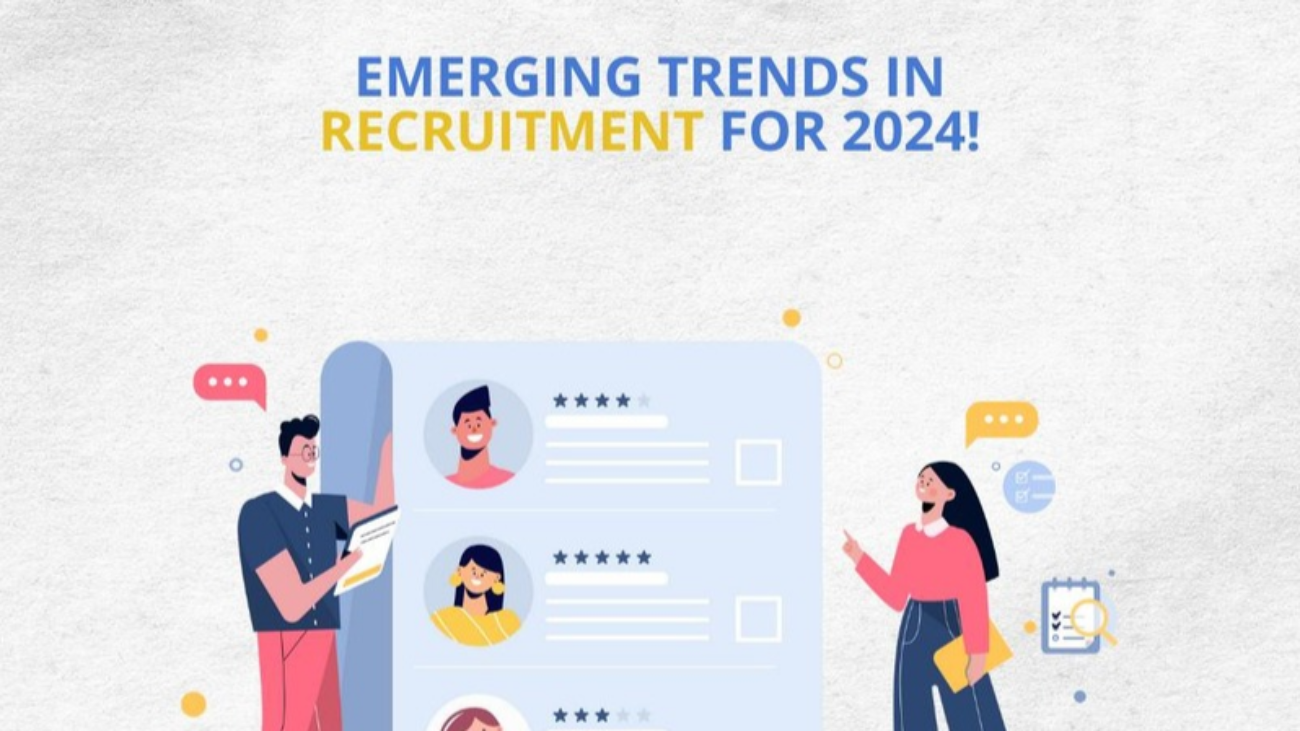As we move into the latter half of 2024, the recruitment landscape continues to evolve, driven by technological advancements and changing workforce dynamics. Staying updated with these trends is crucial for both employers and job seekers. Here are some key emerging trends in recruitment that are shaping the industry:
1. AI-Driven Recruitment
Artificial Intelligence (AI) is transforming the recruitment process. From AI-powered chatbots that provide instant responses to candidate queries to advanced algorithms that screen resumes for specific keywords and qualifications, AI is making hiring more efficient. These tools help recruiters identify the best candidates faster, reducing time-to-hire and improving the overall candidate experience.
2. Remote Work and Hybrid Models
The shift to remote work, accelerated by the pandemic, has become a permanent feature in many organizations. Companies are now embracing hybrid work models, allowing employees to split their time between home and the office. This trend has expanded the talent pool, enabling employers to hire skilled professionals from anywhere in the world. However, it also requires new strategies for managing remote teams and maintaining productivity.
3. Focus on Diversity, Equity, and Inclusion (DEI)
Diversity, Equity, and Inclusion (DEI) initiatives are becoming a top priority for businesses. Companies are actively seeking to build diverse teams that reflect a variety of perspectives and experiences. This focus on DEI not only enhances innovation and creativity but also improves employee satisfaction and retention. Employers are implementing bias-reduction training, diverse hiring panels, and inclusive job descriptions to support these initiatives.
4. Candidate Experience
In a competitive job market, candidate experience is more important than ever. Companies are investing in technologies and processes that enhance the recruitment journey, from seamless application processes to timely communication and personalized feedback. A positive candidate experience can significantly impact an employer’s brand and attract top talent.
5. Upskilling and Reskilling
The rapid pace of technological change means that many job roles are evolving. Companies are focusing on upskilling and reskilling their workforce to meet these new demands. Offering training and development opportunities not only helps employees stay relevant but also boosts their engagement and loyalty. Employers are partnering with educational institutions and online learning platforms to provide these opportunities.
6. Data-Driven Recruitment
Data analytics is playing a crucial role in recruitment strategies. Recruiters are leveraging data to make informed decisions about sourcing, hiring, and retaining talent. Metrics such as time-to-hire, cost-per-hire, and employee turnover rates provide valuable insights into the effectiveness of recruitment practices. Data-driven approaches help optimize hiring processes and improve overall business outcomes.
7. Employer Branding
A strong employer brand is essential for attracting and retaining top talent. Companies are investing in their brand presence by showcasing their culture, values, and employee experiences through various channels, including social media, company websites, and employee testimonials. A positive employer brand helps differentiate organizations in a competitive job market.
Conclusion
The second half of 2024 brings exciting opportunities and challenges for the recruitment industry. By embracing these emerging trends, companies can stay ahead of the curve, attract top talent, and build a workforce that drives success. Whether it’s through AI-driven tools, a focus on DEI, enhancing candidate experience, or investing in employee development, the future of recruitment is bright and dynamic.
